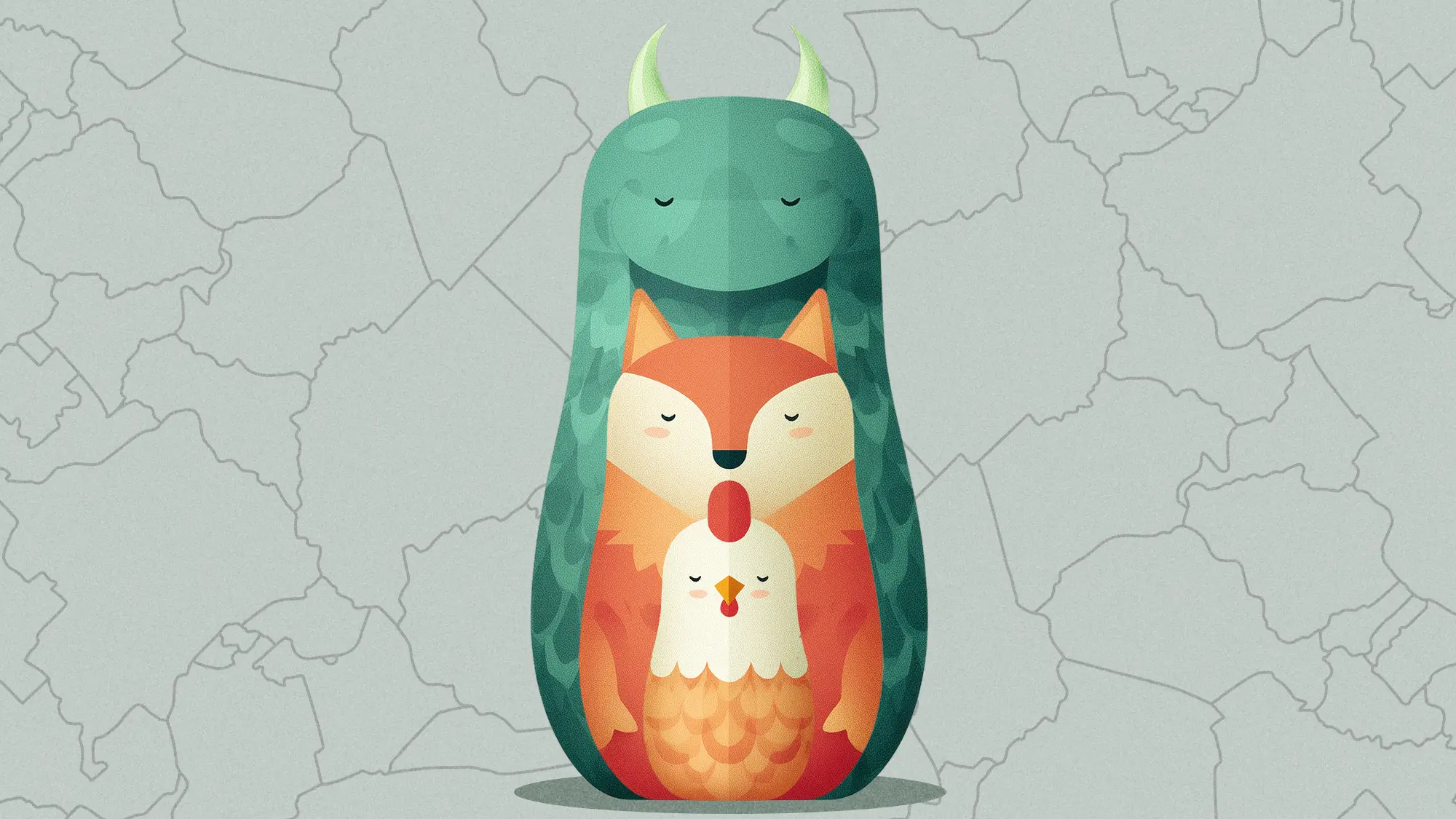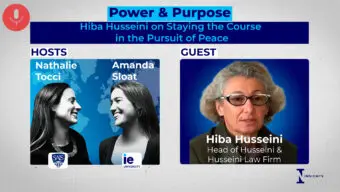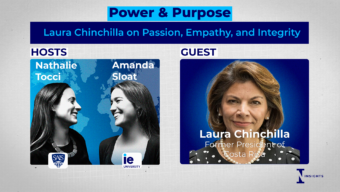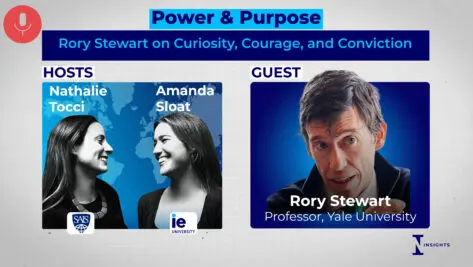For half a century, the Western henhouse lived a life of tranquil stability. The Rooster (liberal democracy) crowed confidently at dawn. And the diligent hens laid their golden eggs that fed liberal and democratic prosperity. Feed was plentiful, and the fences surrounding the henhouse appeared to be sturdy. This was the old Western Economic Order.
Until one day, the Fox appeared (think of a disruptive American president). He did not come out of the forest; he came from within the walls of the Western henhouse. He promised to restore the birds’ supposedly lost pride and the greatness of their homeland. Yet his boastful gait, cunning, hungry gaze, and fiery words did not come with a plan. Instead, the Fox simply tuned into the emotion of grievance.
Western populism, led by the Fox, has shaken the foundations of a stability that was already starting to crack like thinning eggshells. What was once political, cultural, and economic hegemony has been shattered into polarization and internal mistrust.
The henhouse has never been the same since. The hens began to lose their confidence: some stopped laying eggs, others refused to eat. The Rooster lost his strut. The air was thick with ruffled feathers, rumors, and suspicions. The hens didn’t know whether to obey the Rooster’s familiar dawn chorus or the new jarring bark of the intruder: the populist Fox, masquerading as their savior, promoting grievance as gospel, backed by ideas that bolstered the liturgy of the radical right-wing. What is happening in the henhouse has only served to reveal the fragility of the eggs on which the entire order rested.
The Dragon on the horizon
Beyond the henhouse, on the eastern side of the map, a Dragon (an Asian superpower) is calmly awakening, carefully calculating every movement as though practicing ancient tai chi. While the Fox stirs panic in the henhouse, the Dragon lays foundations of stone, steel and treaty. It advances slowly and steadily. It says nothing, avoids arguments with its neighbors and has no need to boast about its greatness: it simply keeps building one stone bridge, one trade route, one alliance after another.
The Dragon makes its conquests with contracts, not cannons, and with infrastructure rather than intimidation. It is gliding through Central Asia, Africa, Latin America, and the Balkans under the umbrella of the Belt and Road (Silk Road) Initiative, which now connects these regions through a network of roads, ports, railways, airports, loans, satellites and technology. Soft-spoken diplomacy replaces noisy military intervention.
On this new chessboard, Russia serves as a circumstantial ally, Africa as the playground for growth, and Latin America as the land of opportunity. The geography of power is shifting, slowly but surely, towards an Asian, African, and Latin American axis – with the Western henhouse looking increasingly peripheral and more like its aging coop.
While the Western henhouse squabbles and ruffles feathers, the Dragon is drawing the map of the 21st century.
The hens and uncertainty
A strange giddiness now reigns in the chaotic henhouse of the West. The certainties of progress have vanished; the ideologies that marshalled the 20th century have become museum pieces. The hens, once sure of their destiny, no longer know what it means to lay eggs: for whom, for what, and to what end?
Worn-out liberal democracy defends itself while capitalism, running on diminishing returns, seeks redemption in moral discourse. Meanwhile, public debate is now entertainment, and politics is becoming theatrical drama performed in full view of the coop.
The silence of the Dragon
The Dragon looks on and acts accordingly. It does not raise its voice because it does not need to. Its strategy is geographical, slow, steady, and inevitable. Meanwhile, the Fox continues to howl, convinced that it is the ruler of the roost.
The 21st century may belong to those who understand that power is not wielded but constructed brick by brick. Hegemony will not belong to those who shout the loudest but to those who know how to grow quietly.
Twilight and mist
Empires do not fall in one battle. The Spanish philosopher Ortega y Gasset wrote in 1929 that civilizations do not die of old age, but of a lack of purpose. The West has not been defeated; it just seems disoriented nowadays. Its tragedy is not its loss of power; it is the loss of faith in the meaning of that power.
While the Dragon advances under the logic of expansion, the Western henhouse seeks a narrative to save it from the deafening clucking and howling within. Yet myths are not built on turmoil: they require clarity, vision, and discipline, virtues that the Fox despises, and the Dragon cultivates. Empires do not fall because they have come under assault. They fall because of the noise inside.
Perhaps we are witnessing the twilight of a form of civilization, as occurs when all historical periods come to an end. It is not an abrupt end, but a slow dusky decline that tints the sky with uncertainty. The henhouse still clucks and crows, but its echo sounds muffled in the enveloping mist. And, in the silence of the East, the Dragon smiles.
The moral of this story is that noise is the costume of crumbling power, while silence is that of growing power. It is said that Napoleon Bonaparte once remarked: “China is a sleeping giant. Let him sleep, for when he wakes, he will shake the world.”
© IE Insights.











